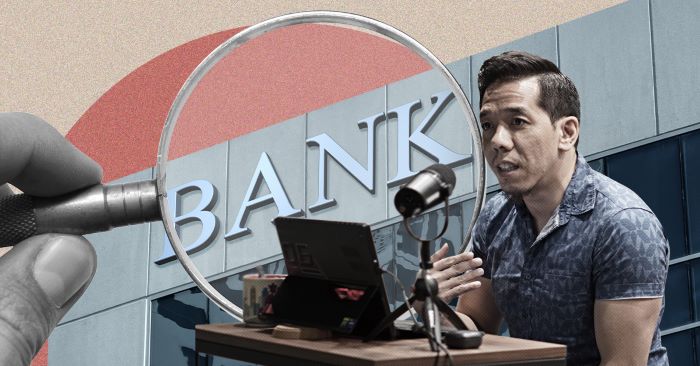Client-Agency Relationships: Things That Work (and Things That Won’t)

Building a Great Client-Agency Relationship
One of the biggest challenges companies encounter is getting solid proof that they’ve made a good investment in the digital marketing agency they’ve chosen.
Sometimes, they wonder why some agencies are willing to walk away after a three-month engagement.
Others wonder why six to twelve months are the minimum advisable period to sign for an engagement.
Just like a relationship, a good client-agency relationship develops over several stages.
Getting to Know You
The Get to Know You phase is where agencies learn about each other and exchange all meaningful information needed to get the engagement going.
In this phase, two aspects are most crucial in the data-gathering phase, or onboarding process.
In our experience, proactive clients do their best to highlight the strengths, weaknesses, benefits, and opportunities of their products. This helps agency SEO, social media, and PPC specialists position a campaign accordingly.
An accurate and thorough understanding of the various buyer personas is extremely important at this time.
It helps creatives finetune their visual materials, while copywriters adapt the tone of their copy to a voice that resonates with these ideal customers.
Doing the Groundwork
In the doing the groundwork phase, all data, research, and preparations are prepped to optimize and launch a campaign.
The data gathered is applied toward setting up a strategy. A lot of coordination takes place to harmonize various aspects of a campaign, especially if different digital marketing strategies are involved, like SEO + PPC, Social Media and SEO, or a mix that involves one or more of these at different stages of the engagement.
One important aspect of groundwork preparations is especially critical in pre-SEO campaigns: your website audit. A web and SEO analysts’ team will go through your website and review the quality of your back-end setup, and whether your Core Web Vitals are getting good scores.
If anything needs to be fixed, it should be done now or as early as possible. Few SEO campaigns nowadays have a chance of doing well if their Core Web Vital performance is not optimal.
Monitoring Progress
The monitoring progress phase: ideally the longest and most productive phase. Campaigns are running, and data is being collected and evaluated. Then these campaigns are pivoted, retooled, or redesigned according to the feedback your campaigns have received.
At this phase, the client-agency relationship will go through a period that is equivalent to a series of stress tests, as the digital marketing agency will have to run its campaigns to see what works – and fix what isn’t.
Threats to a Successful Digital Campaign
When working with a digital agency for the first time, there will often be a temptation to stick to what works, instead of looking closely at new data and having the courage to pivot.
This can be true of web design, SEO, and Social Media projects – in fact, any digital marketing campaign that hopes for big results in a relatively short period of time.
Let’s name three things can derail a highly detailed or design-focused campaign – like a web design project – from achieving its true potential: confirmation bias, design by committee, and shifts in responsibility vs. accountability.
Confirmation bias
As a recent Truelogic DX discussion with web design usability expert Denise Haak reminds us, marketers can be sometimes guilty of confirmation bias.
Marketers can get used to looking for external confirmation of what they believe, instead of accepting insights that come to light from more recent campaigns.
Design by Committee
The second threat is what we call design by committee. Design by committee occurs when a large number of stakeholders become involved too early or too deeply into a campaign.
When a design by committee mindset takes over, a digital marketing account management team can be suddenly burdened with accommodating everyone.
Sometimes, all this does is slow down the progress of a project, causing deadlines to move.
In other cases, this can result in multiple, detailed, and extensive changes that take campaigns away from some of their original and most important objectives.
For web design projects, this may mean executing a design project that took longer than usual, and with many less innovations or revisions that a brand’s Marketing team wanted to implement.
Responsibility vs. Accountability
The third threat is the classic dilemma of responsibility vs. accountability.
Normally, responsibility is left to brand teams while they work with client engagement teams on the agency side, while accountability is the presentation of results to management for approval.
Sometimes, however, senior management wants to be “hands-on” with the design or creative aspects of a campaign.
Instead of letting the brand marketing team assess, approve, or disapprove proposals by an agency in campaign execution, management would like to have control and approval over every creative decision.
This can slow down turnaround of critical tasks, or even bog down a project if a big disagreement occurs.
Trust in agency and brand marketing teams is crucial to surmounting these situations – which can and do happen.
To prevent this, it’s important for brands to learn to trust the agency they’ve chosen from the outset.
At the prospect and negotiations phase, get to know the agency you’re talking to as much as you can. Learn their processes, review their portfolio, and look for external proof that the work they do is to your liking.
Evaluating Your Campaigns’ Success
It’s important to close the loop to any digital agency engagement by evaluating the strength of any campaign.
Good agencies communicate interim results on a weekly and monthly basis, and will sit down with you to evaluate medium-term progress at the half-year or half-mark point of any contract.
One of the best aspects of digital marketing campaign management is the ability to finetune campaign directions in small but significant ways quickly and effectively.
This saves companies many of the costs and headaches associated with more traditional marketing campaigns, which have always been harder to measure.
More importantly, regular reports are the best way to apply what both agency and brand have learned about the work they are currently doing.
The best digital marketing agencies are passionate about details and achieving results for their clients, and nothing is more satisfying than meeting objectives and delivering results agreed upon with the client.








